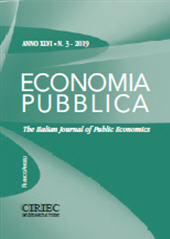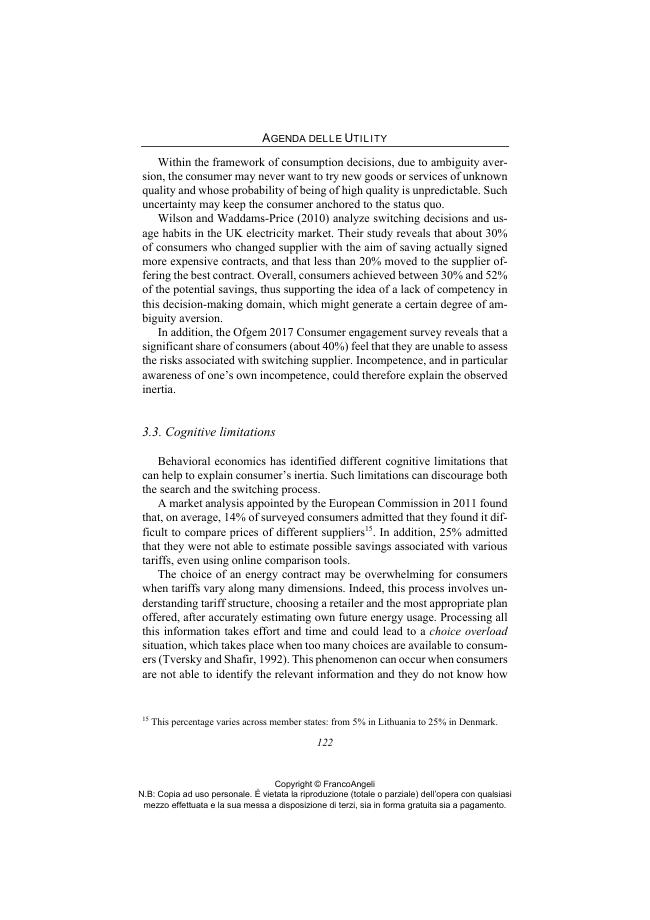Consumer inertia in energy markets : insights from behavioral economics
113-130 p.
The transition towards deregulated energy markets requires a dynamic participation by consumers. Yet, in many European countries, a high degree of consumer inertia is observed: the rate of switching to new tariffs and providers is far from being satisfactory. Neoclassical consumer choice models cannot explain this phenomenon, unless assuming that perceived transactions costs are disproportionately high. This paper discusses how more realistic assumptions about consumer behavior can help interpret low switching rates. In particular, it examines psychological aspects (e.g., loss aversion, present bias, ambiguity aversion) and cognitive biases (e.g., choice overload, overconfidence) that can explain consumer stickiness in energy markets.
Different behavioral traits point at different policy interventions. Therefore, such analysis illustrates how crucial it is that policy-makers aiming at reducing consumer inertia take these behavioral aspects into account and make use of experimental testing when laying out interventions. [Publisher's text].
Is part of
Economia pubblica : XLVI, 3, 2019-
Articles from the same issue (available individually)
-
Information
ISSN: 1972-5566
DISCIPLINES
KEYWORDS
- Energy markets, consumer inertia, regulation, psychological biases, cognitive limitations, behavioral economics



